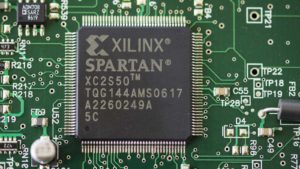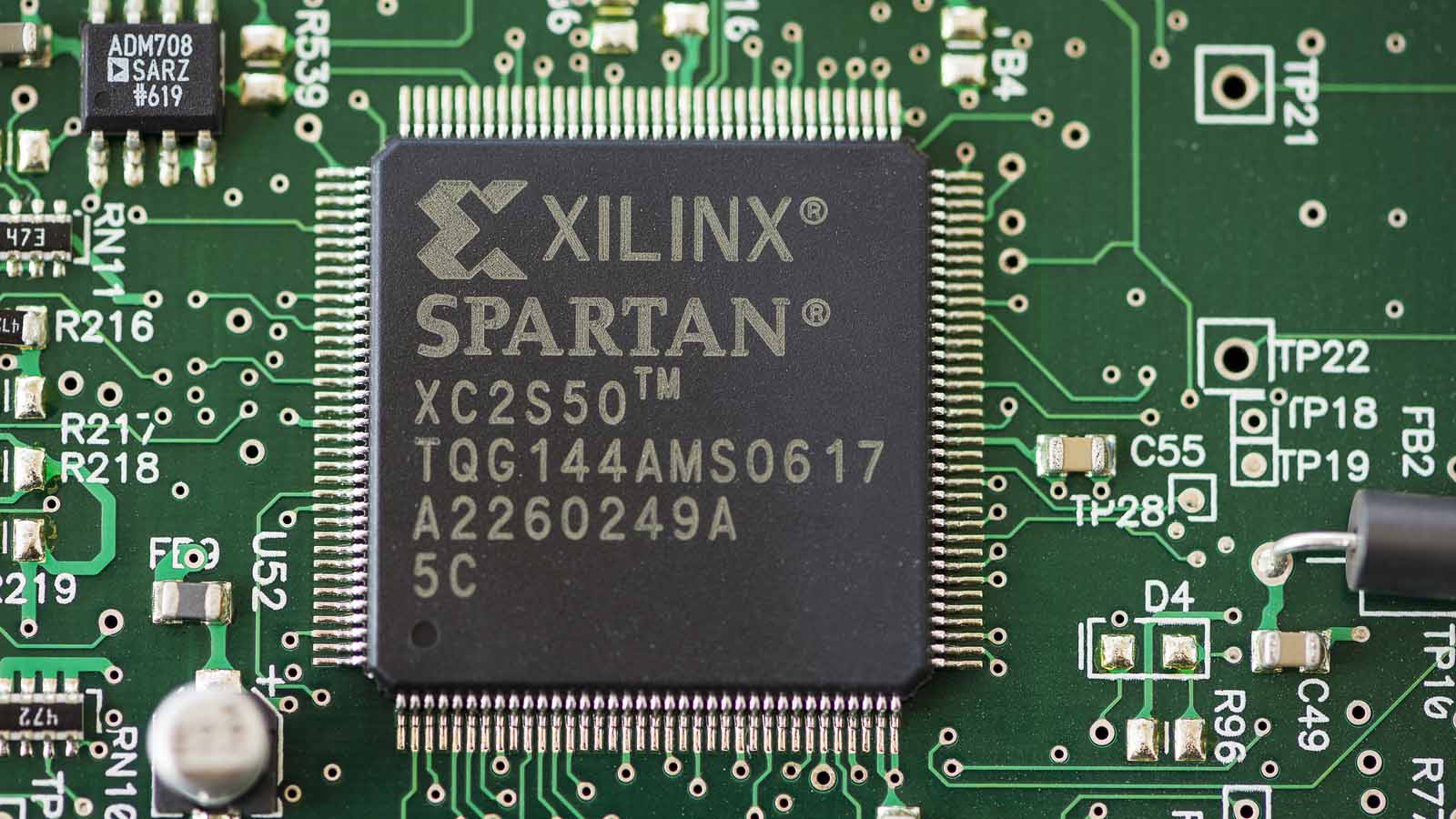California-based Xilinx is “fabless,” meaning that the company designs chips but doesn’t manufacture them. If you’re planning to look for Xilinx through your broker, I’ll save you some time and effort right now, as XLNX stock has vanished.

Of course, this doesn’t mean that Xilinx has gone out of business. There’s actually good news to report here – but also some things for prospective investors to consider.
For example, you’d need to think about whether you’re ready to invest in not just one fabulous fabless chip companies, but two of them. Indeed, a headline-grabbing merger means that you’d be taking a position in both Xilinx and another technology innovator.
Clearly, there are some exciting changes afoot and, perhaps, a terrific opportunity for forward-thinking tech-market traders. With that in mind, let’s delve into the details of what might be considered 2022’s most consequential tech acquisition, so far.
Broad and Robust Demand
Jan. 26, 2022, was a monumental day for Xilinx and the company’s stakeholders. On that day, Xilinx released the results for the company’s third fiscal quarter.
Those results were outstanding. In spite of “ongoing industry-wide supply constraints” (i.e., the global tech-component shortage), Xilinx generated record revenue of $1.011 billion during the third fiscal quarter. That figure represents 8% sequential growth as well as a 26% year-over-year increase – not too shabby.
Turning to the bottom-line results, Xilinx reported third-fiscal-quarter GAAP diluted earnings per share of $1.19. This result signifies improvement of 27% quarter-over-quarter, and of 73% year-over-year.
Moreover, noting “broad and robust demand across our end markets,” President and CEO Victor Peng observed that Xilinx had “surpassed $1 billion in quarterly sales for the first time in the company’s history.”
A Game-Changing Merger
All of those powerful data points should have been enough to get Wall Street buzzing about Xilinx. Yet, there’s even more news to report.
It seems like ages ago, but on Oct. 27, 2020, Advanced Micro Devices (NASDAQ:AMD) announced its intention to acquire Xilinx. After a long wait, on Feb. 14 of this year, the Xilinx buyout was completed.
Of course, this means that Advanced Micro Devices will have access to Xilinx’s products and infrastructure. Even beyond that, former Xilinx CEO Victor Peng will join Advanced Micro Devices as president of the newly formed Adaptive and Embedded Computing Group.
All in all, this merger represents a serious threat to competing fabless chip businesses, and to tech companies in general.
Say Good-Bye to XLNX Stock
As Advanced Micro Devices CEO Lisa Su put it, her company can now “offer the strongest portfolio of high-performance and adaptive computing solutions in the industry and capture a larger share of the approximately $135 billion market opportunity we see across cloud, edge and intelligent devices.”
Suffice it to say that this merger is so significant, that Advanced Micro Devices devoted a separate web page, investor presentation and fact sheet to it.
The next logical question would be: where does this leave the people who had owned XLNX stock?
No worries – they weren’t left in the lurch. As it turned out, they received 1.7234 Advanced Micro Devices shares “and cash in lieu of any fractional shares of AMD common stock” for each Xilinx share.
Thus, Xilinx shareholders became Advanced Micro Devices shareholders. That’s not the worst thing that could happen to an investor, wouldn’t you agree?
The Bottom Line
The recent financial data showed that Xilinx was already a highly successful chip business prior to its acquisition. Hence, the investors already had plenty of reasons to like Xilinx.
Now, the company is part of a famous chip-market giant. Granted, this means that Xilinx’s long-standing shareholders will have to reassess their investment.
Still, it’s hard to imagine that many of them will choose to sell their shares now. Xilinx and Advanced Micro Devices were, by themselves, great companies; together, they’ll be unstoppable.
On the date of publication, David Moadel did not have (either directly or indirectly) any positions in the securities mentioned in this article. The opinions expressed in this article are those of the writer, subject to the InvestorPlace.com Publishing Guidelines.
